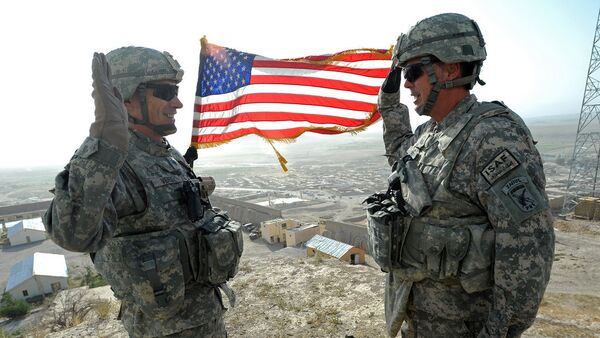WASHINGTON (Sputnik) — On Monday, US Secretary of State John Kerry announced that Afghanistan had officially joined the international coalition against the Islamic State. The Department of State would not disclose, however, what it expected Afghanistan to contribute to the fight.
"The Afghan participation helps to distract the Afghan populace from the almost colonial level of influence that the United States and NATO exert and have long exerted on the Afghan government," University of Arizona Professor of History David Gibbs told Sputnik.
Kabul’s role in the coalition helps legitimate the Afghan state, Gibbs added, which is so weak and so dependent on Washington and its Western partners.
Gibbs argued that the Afghan government’s membership gives it "legitimacy in the eyes of its own people, as a real government that at least in a formal sense is respected and welcomed in a broad international coalition."
Elizabeth Gould and Paul Fitzgerald, authors of highly-acclaimed books on US foreign policy, told Sputnik that Afghanistan hopping on board the US-led counterterror express train is actually all about "mutual self-interest."
"The United States is looking for any excuse to justify staying in Afghanistan and the Afghan government knows it will fall if the United States leaves," Gould and Fitzgerald said.
On Tuesday, US Commanding General in Afghanistan Gen. John Campbell said that NATO was considering allocating funds to support Afghanistan through 2020.
Media reports emerged in recent weeks claiming that the White House had authorized US military personnel in Afghanistan to target the Islamic State, which is also known as Daesh.
The Central and South Asian branch of the Islamic State has expanded its presence in Afghanistan and Pakistan, and has recently been declared a foreign terrorist organization by the State Department.


